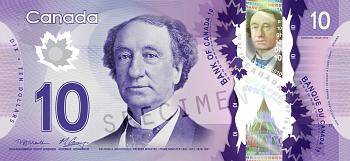Burning Questions: Will Canadians spend their mountain of saved cash to rescue the economy?
James Lorimer Ilsley managed Canada’s fiscal affairs during the Second World War, overseeing an unprecedented period of government spending as the finance minister in William Lyon Mackenzie King’s cabinet.
By June 1946, though, Ilsley and others were eyeing the finances of everyday Canadians. And, as he observed in a speech in the House of Commons, the amount of money saved by many people had shot up during the war, helped by the purchase of bonds used to bankroll the fight.
The question back then was what to do with this thrifty trend now that the war was over. The answer was to introduce the Canada Savings Bond, a tool of retail investment and debt finance that helped fund the federal government for decades.
“I believe that (honourable) members will agree that it is important to any country that great numbers of citizens should continue to acquire and to hold a tangible stake in their nation,” Ilsley said at the time, according to arecord of parliamentary debates.
Fast forward 74 years and Ilsley’s successors have similarly found themselves in a period of massive government expenditure, this time brought on by the coronavirus pandemic, which has spurred spending on a number of support programs for people and businesses.
What’s more, citizens have once more amassed a considerable amount of savings in the midst of a crisis — which prompted a drop in consumer spending — and the federal government again sees those reserves as crucial to the country’s well-being. In Ottawa, the quality of the post-pandemic recovery will hinge, at least in part, on the shopping habits of Canadians.
“Unleashing these savings will be a key element of the government’s recovery plan,” declared the Fall Economic Statement put out at the end of November by Prime Minister Justin Trudeau’s government.
But plans being drawn up in Ottawa to help liberate that mountain of cash might differ somewhat from those being drawn up in the minds of Canadians.
For one thing, the excess cash sloshing around bank accounts may be disproportionately held by those who already had plenty of it. Other people and some businesses, still cautious because of the pandemic’s lingering economic effects, may choose to sit on their wallets a while longer, or even more often than before the pandemic’s arrival.




